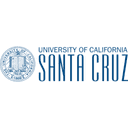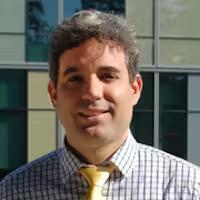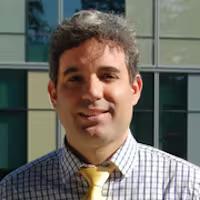This course is part of Bayesian Statistics Specialization.
This course cannot be purchased separately - to access the complete learning experience, graded assignments, and earn certificates, you'll need to enroll in the full Bayesian Statistics Specialization program. You can audit this specific course for free to explore the content, which includes access to course materials and lectures. This allows you to learn at your own pace without any financial commitment.
4.5
(52 ratings)
9,916 already enrolled
Instructors:
English
What you'll learn
Implement mixture models using maximum likelihood and Bayesian approaches
Develop MCMC algorithms for mixture model estimation
Apply mixture models to clustering and classification problems
Compute mixture distribution properties accurately
Implement advanced statistical algorithms in R
Evaluate model performance using Bayesian criteria
Skills you'll gain
This course includes:
7.4 Hours PreRecorded video
11 assignments
Access on Mobile, Tablet, Desktop
FullTime access
Shareable certificate
Closed caption
Get a Completion Certificate
Share your certificate with prospective employers and your professional network on LinkedIn.
Created by
Provided by

Top companies offer this course to their employees
Top companies provide this course to enhance their employees' skills, ensuring they excel in handling complex projects and drive organizational success.





There are 5 modules in this course
This comprehensive course covers advanced topics in Bayesian statistics, focusing on mixture models and their applications. Students learn theoretical foundations and practical implementations using R programming. The curriculum includes maximum likelihood estimation, Bayesian estimation, MCMC algorithms, and applications in density estimation, clustering, and classification. Special attention is given to computational considerations and model selection criteria.
Basic concepts on Mixture Models
Module 1 · 4 Hours to complete
Maximum likelihood estimation for Mixture Models
Module 2 · 3 Hours to complete
Bayesian estimation for Mixture Models
Module 3 · 3 Hours to complete
Applications of Mixture Models
Module 4 · 4 Hours to complete
Practical considerations
Module 5 · 4 Hours to complete
Fee Structure
Individual course purchase is not available - to enroll in this course with a certificate, you need to purchase the complete Professional Certificate Course. For enrollment and detailed fee structure, visit the following: Bayesian Statistics Specialization
Instructor
Expert in Applied Mathematics and Statistics with a Focus on Bayesian Methods and Machine Learning
Abel Rodriguez is a professor in the Department of Applied Mathematics and Statistics at the University of California, Santa Cruz. He joined UCSC in 2007 after earning his PhD in Statistics and Decision Sciences from Duke University. An accomplished author, he has published two books and over 40 journal and conference papers. His research interests encompass Bayesian nonparametric methods, machine learning, spatiotemporal models, network models, and extreme value theory.
Testimonials
Testimonials and success stories are a testament to the quality of this program and its impact on your career and learning journey. Be the first to help others make an informed decision by sharing your review of the course.
Frequently asked questions
Below are some of the most commonly asked questions about this course. We aim to provide clear and concise answers to help you better understand the course content, structure, and any other relevant information. If you have any additional questions or if your question is not listed here, please don't hesitate to reach out to our support team for further assistance.



